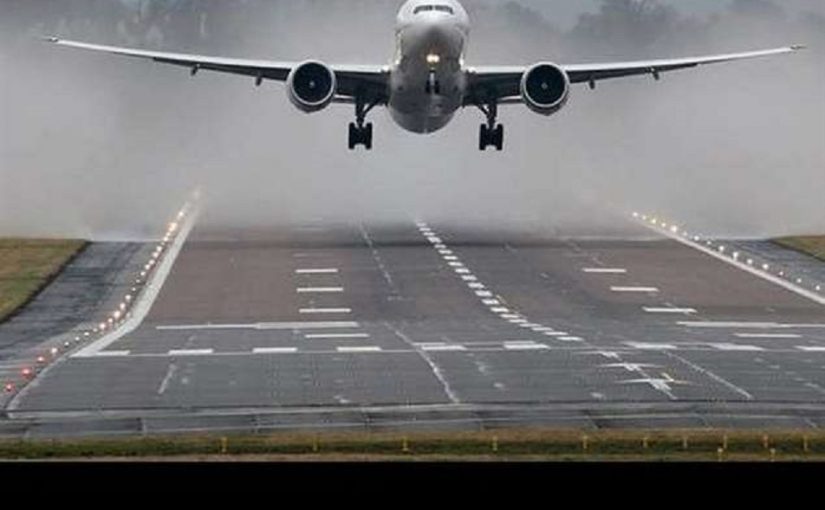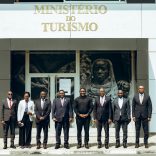Mozambique to renew tourism sector agreements with neighbouring countries
Minister seeks debate on problems hindering air traffic in Mozambique

File photo
Mozambican Transport Minister Carlos Mesquita on Tuesday called for a wide-ranging debate on the factors hindering the growth of the domestic air travel market, despite the measures taken by the government.
Speaking in Maputo, at the opening of a meeting of the Aeronautical Council, Mesquita mentioned among those measures the liberalisation of Mozambican air space, the existence of an attractive package of civil aviation legislation, and modern airport facilities currently operating at below capacity. Yet “growth in passenger numbers remains a challenge”.
The meeting, which is a consultative platform involving air companies, civil society and other public and private bodies with a direct interest in aviation, is looking in depth at the work being undertaken to pursue the strategic option of gradual liberalisation of air space.
“The opening of air space is a response to the need for greater mobility of people with a positive impact on the promotion of tourism”, said Mesquita, noting that the government has defined tourism as one of the four priority pillars for the rapid development of the country (the others are agriculture, energy and infrastructures).
This was why domestic routes have been opened to competition, with the London-based company Fastjet beginning its operations between major Mozambican cities earlier this month. This, said the Minister, increased the choices available to people who wished to use domestic air transport.
“We reiterate the determination of Mozambique to continue the gradual liberalisation of our national air space”, added Mesquita. “It is our vision that, with the opening up of our air space, we are allowing Civil Aviation to fulfil its role of stimulating the country’s economy”.
But the government was concerned about the effectiveness of the reforms it has introduced. Among the factors that could be limiting the growth of air traffic, Mesquita suggested, were operational costs and their impact on ticket prices, the taxes and fees charged on civil aviation, and a business environment which, he admitted, was not inviting for Mozambican private companies, who were therefore slow to take advantage of the opportunities generated by the opening of the national market.
Other matters that the Council should analyse, said Mesquita, included the need for flexibility in the management of airport facilities to meet the timetables and other needs of airport operators, and the promotion of integrated tourist packages in line with the need of the market.
Matters concerning the safety, comfort and rights of passengers demanded special attention, he added, encouraging the IACM in its work to draw up a charter of air passengers’ rights.
He stressed that the expansion and modernisation of the country’s airports is continuing, while the regulatory body, the Mozambique Civil Aviation Institute (IACM), is drawing up a legislative package to ensure that the reforms under way obey the norms and guidelines of the international bodies that oversee aviation.
Also Read: China signs agreements with Mozambique and grants EUR 12.7 million for new airport
Meanwhile businesses in the northern city of Nampula have protested against a proposal by the publicly-owned Mozambican Airports Company (ADM), first made last year, to close Nampula airport to international traffic, and transfer international flights to Nacala.
Nacala is the newest and most modern of Mozambique’s airports. But it is also chronically underused. The only air company using Nacala is Mozambique Airlines (LAM), for a few flights a week to and from Maputo. Not a single international company has shown any interest at all in Nacala.
Nacala airport is also blighted by suspicions of corruption. It was built by the Brazilian company Odebrecht, which, according to the United States Justice Department, secured contracts by paying bribes in a dozen countries, including Mozambique. It is known that Odebrecht paid a bribe of 900,000 US dollars in Mozambique.
The details of who received the bribe and what it paid for have not yet been released, but far and away the largest and most controversial of the projects for which Odebrecht was the contractor was Nacala airport. The airport was inaugurated in December 2014 by the then President Armando Guebuza. The total cost of the airport was put at 200 million dollars, partly financed by a loan from the Brazilian state bank, BNDES (National Bank of Economic and Social Development).
Currently the scheduled international flights using Nampula are to Dar es Salaam, Johannesburg and Nairobi.
Last week a meeting of the Nampula Provincial Business Council in association with the Nampula Hotel and Tourism Association warned that closing Nampula airport to international flights would be a step backwards for the economy of the region. Business people travelling abroad would be forced to go by road to Nacala before catching their flight.
Also Read: Nampula airport closure to international flights leaves business sector apprehensive
According to a report in Tuesday’s issue of the Maputo daily “Noticias”, the provincial government itself is not prepared for the proposed change.
The Executive Director of the Mozambican Hotel and Toursim fedderation, Raufo Satar, said that, although the proposal might be good for the development of the country “now is not the time that we are able to implement it. That is why we are holding these meetings to hear what people feel about the matter, and then we will produce a final report”.
The deputy director of Nampula Airport, Dinis Tacula, told “Noticias” that the proposal to shift international flights to Nacala is just a proposal which is still under study.
Also Read: More on Mozambique issuing RFP for consultants in LAM’s restructuring












Leave a Reply
Be the First to Comment!
You must be logged in to post a comment.
You must be logged in to post a comment.